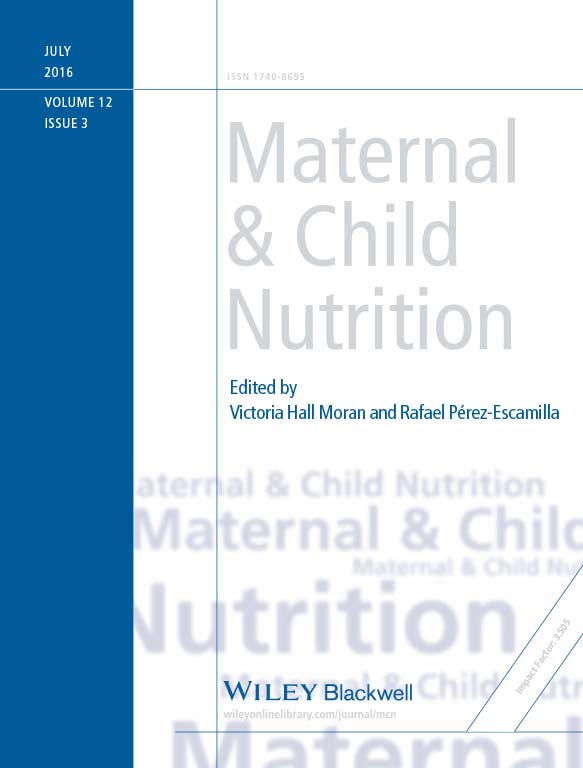This article was published in the Maternal & Child Nutrition Supplement: Availability, Promotion and Consumption of Commercial Infant Foods.
Abstract: In 2005, Cambodia passed the Sub-Decree on Marketing of Products for Infant and Young Child Feeding (no. 133) to regulate promotion of commercial infant and young child food products, including breastmilk substitutes. Helen Keller International assessed mothers’ exposure to commercial promotions for breastmilk substitutes and use of these products through a cross-sectional survey among 294 mothers of children less than 24 months of age. Eighty-six per cent of mothers reported observing commercial promotions for breastmilk substitutes, 19.0% reported observing infant and young child food product brands/logos on health facility equipment and 18.4% reported receiving a recommendation from a health professional to use a breastmilk substitute. Consumption of breastmilk substitutes was high, occurring among 43.1% of children 0–5 months and 29.3% of children 6–23 months of age. Findings also indicated a need to improve breastfeeding practices among Phnom Penh mothers. Only 36.1% of infants 0–5 months of age were exclusively breastfed, and 12.5% of children 20–23 months of age were still breastfed. Children that received a breastmilk substitute as a prelacteal feed were 3.9 times more likely to be currently consuming a breastmilk substitute than those who did not. Despite restriction of commercial promotions for breastmilk substitutes without government approval, occurrence of promotions is high and use is common among Phnom Penh mothers. In a country with high rates of child malnutrition and pervasive promotions in spite of restrictive national law, full implementation of Cambodia’s Sub-Decree 133 is necessary, as are policies and interventions to support exclusive and continued breastfeeding.
Authors: Alissa M. Pries, Sandra L. Huffman, Khin Mengkheang, Hou Kroeun, Mary Champeny, Margarette Roberts and Elizabeth Zehner
View Resource
